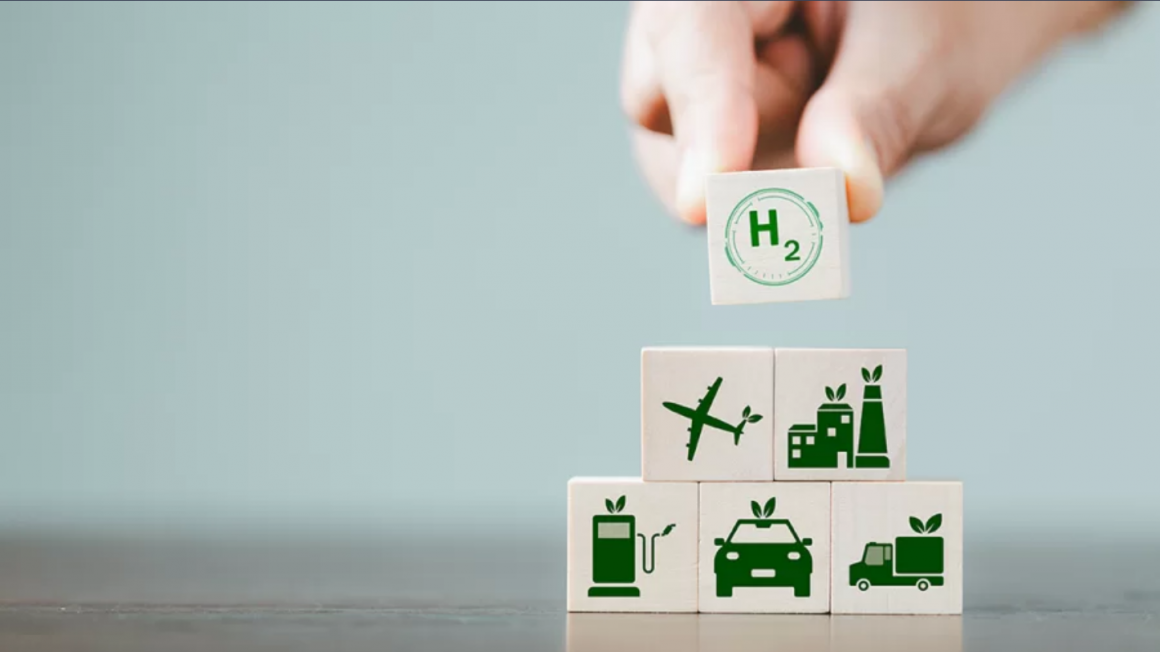As the world shifts towards cleaner energy solutions, hydrogen is becoming a cornerstone of the green transition. Atlantic France is emerging as a leader in this sector. The region is at the heart of several hydrogen ecosystems and is developing training in this field, offering unique opportunities for international entrepreneurs.
Atlantic France is home to several high-impact projects that position the region as a key player in the hydrogen economy. The objective is to create business ecosystems dedicated to hydrogen, bringing together public bodies, big companies, innovative startups, laboratories, and academics.
Two examples of hydrogen ecosystems: AdvancedH2Valley and H2Ouest
The latest initiative AdvancedH2Valley, was launched a couple of months ago. This ambitious project spans the regions of Atlantic France, Centre Val de Loire, Normandy, and Brittany, with plans to create up to 11.5 MW of new hydrogen production capacity.
The project also involves the deployment of hydrogen-powered trucks and maritime logistics applications, all aimed at avoiding 14,600 tonnes of CO² emissions over two years. AdvancedH2Valley was awarded an €8.9 million grant from the European Clean Hydrogen Joint Undertaking, boosting its potential for success and scalability.
Another major hydrogen initiative in the region is H2Ouest, launched in 2020. H2Ouest is driving the development of a 100% green hydrogen sector focused on mobility solutions. This project has already deployed 32 hydrogen-powered vehicles, including public buses and private transport, and established the region’s first network of hydrogen refuelling stations.
Thanks to these efforts, H2Ouest is expected to prevent 1,267 tonnes of CO² emissions annually, marking it as a significant contributor to Atlantic France’s sustainability goals. The initiative is a winner of Ademeʼs “Hydrogen mobility ecosystems” call for projects.
Both AdvancedH2Valley and H2Ouest illustrate the region’s commitment to hydrogen innovation, making Atlantic France an attractive destination for businesses aiming to be part of the hydrogen revolution. These projects showcase the region’s capability to not only lead in hydrogen production but also integrate it across multiple industries, from transportation to logistics, positioning it as a global leader in hydrogen technology.
Training a skilled workforce to impulse the hydrogen revolution
Beyond its vibrant hydrogen ecosystems, Atlantic France also offers one of the most comprehensive hydrogen-related education and training programmes in the country. This is crucial for businesses looking to hire or train experts in this rapidly growing field.
100,000 jobs by 2030
According to France Hydrogène, the hydrogen sector is set to create over 100,000 direct and indirect jobs in France by 2030, with more than 80 different types of professions. To meet this demand, Atlantic France is aligning its educational programs to ensure a steady flow of qualified professionals.
An assessment carried out in June 2023 identified 216 hydrogen-related training programmes across France, many of which are based in Atlantic France. These include both certifying and non-certifying programmes designed to train students at all levels—from vocational qualifications to doctoral degrees.
The DEF’Hy project
One notable initiative is the DEF’Hy project (Developing Employment and Training in the Hydrogen sector), led by the France Hydrogène association. This project focuses on analysing current and future workforce needs, particularly in hydrogen technologies.
While there will be a high demand for engineers to develop new technologies in the initial stages, starting from 2028, recruitment will primarily shift to technicians and operators, representing up to 80% of the required workforce.
The Hydrogen FH2PDL project
The Hydrogen FH2PDL project, which was carried out between January and May of 2023 and was led by the Universities of Le Mans and Nantes, aimed to analyse the skills and training needs of Atlantic France players in the hydrogen sector. It further highlights the region’s commitment to building a skilled workforce.
This project focused on mapping existing hydrogen training programmes in Atlantic France and proposing actions to enhance the local training offered to meet the needs of hydrogen businesses.
Higher education institutions and research labs
In addition to universities, many other key institutions are contributing to hydrogen training in Atlantic France. Schools like Lycée Carnot de Saumur and La Joliverie in Nantes are playing pivotal roles in educating future hydrogen professionals.
Engineering schools such as Centrale Nantes and ESTACA are developing specialised programmes, while laboratories such as IMN and IREENA are fostering cutting-edge research, offering opportunities to postgraduate students and researchers.
Training centres for professionals
Moreover, specialised centres like Energy Formation, the centre created by CNAM and RATP Dev in La Roche-sur-Yon, and the hydrogen-focused national centre being developed by Cetim in Nantes are further enriching the region’s training ecosystem.
These institutions are creating state-of-the-art facilities and technical platforms to train professionals in hydrogen technologies, ensuring that Atlantic France remains at the forefront of hydrogen education and innovation.
With its robust hydrogen ecosystems and world-class training programmes, Atlantic France is the ideal location for entrepreneurs looking to shape the future of energy. Read our latest report on the hydrogen sector to learn more about the opportunities Atlantic France can offer your business.


 日本語
日本語  Français
Français 



